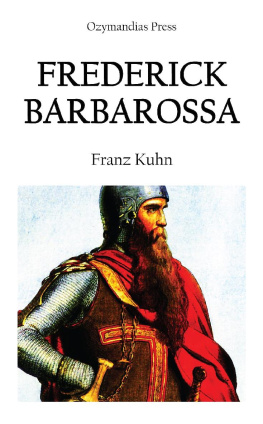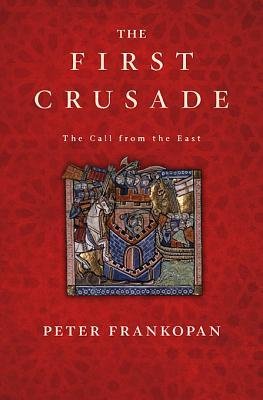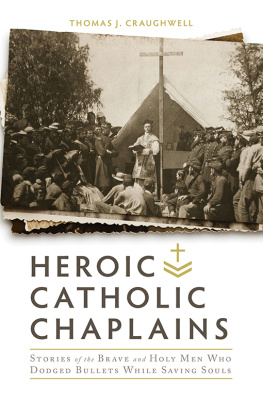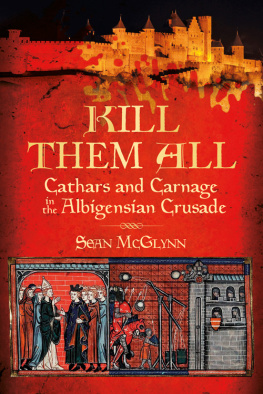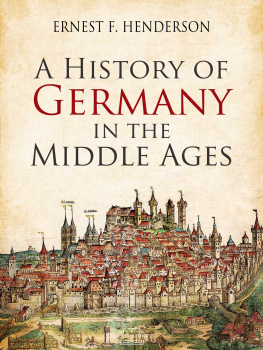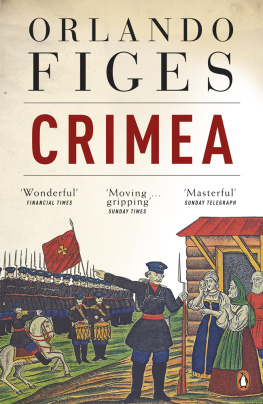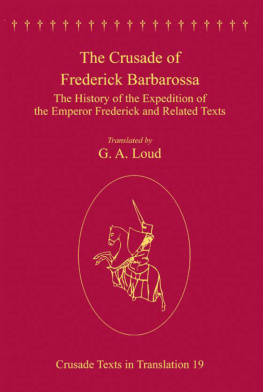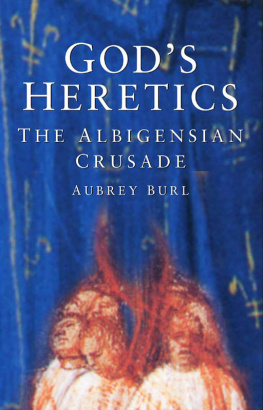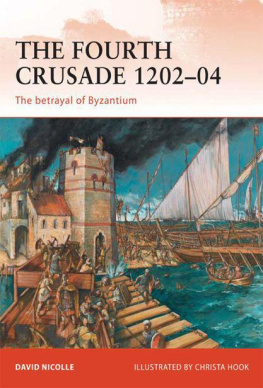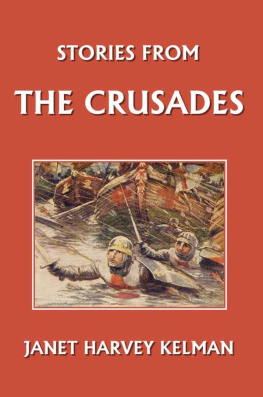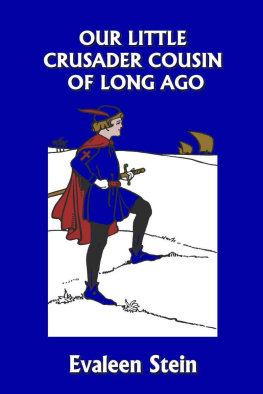TABLE OF CONTENTS
Return of the Crusaders
THE SECOND CRUSADE WAS ended. Exploits as heroic as those in the first Crusade, under Godfrey of Bouillon, had been performed, but no battles as glorious as those in the first had been fought. It was a difficult task to wrest Palestine from the domination of the Turks. Scarcely the tenth part of the stout champions who set out from the various provinces of France and Germany returned, and of this little remnant many were exhausted by marches, enfeebled by disease, and doomed to speedy death. Most of the castles resounded with lamentations over the death of their masters. Widows and orphans stood wringing their hands around catafalques in front of the altars in the castle chapels, as the chaplains prayed for the souls of the noble ones who had given their lives for the Christian religion in the far distant wastes of Asia.
Every province mourned its dead, for in many cases the people had lost their lord and protector, who had restrained cruelty and lawlessness. Even in cases where these masters had ruled with an iron hand and, in violation of their knightly and Christian duties, had maltreated their inferiors, there was no rejoicing over their death; for during the sons minority the guardian came into absolute control and might rob and plunder at will, while if there were no heir, the Emperor had the power to place a stranger over them. It is better to cling to the old ways was a German saying, even then.
Felseck was one of the few joyous castles. A great banner bearing the colors of its master waved from the loftiest turret. Armed servitors stood upon the ramparts and the guardians of his widely scattered possessions awaited his coming at the gates and portcullises. From the watchtower the warder scanned the plain, which stretched a long distance from the castle heights, watching with experienced eye every cloud of dust raised by each little passing troop. Many a time the heart of the warder, who had grown gray in faithful service to his master, beat more quickly as his keen glance recognized signs of an approaching company, and repeatedly he brushed away a tear when he found himself deceived and saw the company riding off in another direction, or not displaying the colors of the house.
It was already past midday. Many a face was clouded with anxiety and suspense, and some even feared that the report of the safe return of the lord of the castle might be false, especially as so many reports had proved untrue. Rather than have their joy turn to bitter grief, it would have been less sorrowful tidings had they been told at once that Conrad of Feuchtwangen was no longer among the living. It would have been a crushing sorrow, but they could have submitted to the inevitable with more courage than if they had had to realize that the hope of his return, once aroused, must give place to life-long disappointment.
A cloud of dust appeared again, and the warder gave the signal. A solitary knight was seen riding swiftly toward the castle. His colors could not yet be made out, and the occupants of the castle, as well as the people round about who were awaiting the arrival of the lord of the manor, hovered between fear and hope. All watched the approaching stranger anxiously; many insisted they could distinguish the colors of the house, but others were in doubt. When it was certain that the former were right, then all were eager to know whether he brought joyous or sad tidings.
A trumpet signal was heard in the distance, to which the warder at once replied. This interchange of calls announced the approach of a friend of the house. Rushing forward to meet him, the people questioned the rider and begged for information. They followed after his sweating steed and exultantly surged forward to the castle gate. The nearer he came, the bigger and more clamorous grew the multitude, and long before the gates were opened to him, the people were confident he was the bearer of good tidings.
Then the castle halls resounded with joyful acclamations which could be restrained no longer, and which grew more exultant as another and louder flourish of the trumpet was heard from the watch-tower; all rushed out to extend their welcome, for, rapidly as the little band approached, it was all too slow for the impatient throng. The broad plain was soon covered with the enthusiastic multitude. All were eager to witness the return of their good master to his ancestral halls after the performance of such glorious deeds in the face of such adverse circumstances.
Stout hands bore the consort of the returning knight in a litter at the front; and by her side were her two lovely, fair-haired boys, images of their father, who could not restrain their impatience and were doing their utmost to keep up. At last they met the returning knights. Conrad of Feuchtwangen quickly dismounted from his great war-horse, and in an instant his faithful Gertrude was in his arms.
The joy of seeing her lord once more overcame her, and she clung helplessly to the strong man who was again all her own after such long absence, and spared from the dreadful dangers to which he had been exposed daily and almost hourly. She had hardly recovered herself before she was greeted with passionate embraces and expressions of joy, which the boys also shared. Frightened at first by the stern, sun-browned face of their father and the pallor of their mother, they soon regained their courage. They clung to him and were loth to desist from hugging and kissing him and calling him the tenderest of endearing names. Universal joy prevailed, and tears of sympathy came to the eyes of many a bearded warrior at the sight of such happiness. Good wishes and the heartiest of welcomes were extended on all sides, and Knight Conrad cordially thanked all, both high and low.
When the first joyous outburst was over, they made their way to the castle. Gertrude mounted a beautiful snow-white palfrey; the boys were placed on their fathers war-horse, and supported by his strong arms they passed through the joyous multitude, who followed after them. The knight and his train entered the beautifully decorated castle halls, while the armed servitors and the people could hardly find room in the large courtyard. Evening came, but its cool air did not dampen the enthusiasm. The courtyard glowed with the light of torches illuminating the crowd, which was hilariously but harmlessly celebrating the occasion with the contents of the castle cellars. Within, in his high ancestral hall, Conrad sat with his family and friends at a richly furnished table, and many a bumper of choice wine was drank in honor of the happy homecoming. At intervals the cheerful strains of lutes were heard, and the Minnesingers, inspired to do their best, sang many a long-drawn-out story of the heroic deeds of the old German heroes, in majestic verse.
We have had enough, noble sirs, at last said Conrad. Thanks for your painstaking service. Now join us in celebrating this happy day. You must be weary.
Oh, my lord, how could we ever tire of relating the great deeds of our ancestors? Are they not the source of all the pleasures and sorrows of the present and future? Do they not inspire emulation of noble actions, and the exercise of knightly virtues?
Their remembrance is a treasure for all time, said a knight of about the same age as Conrad, but we have also witnessed exploits worthy of our ancestors, even if the outcome was not as fortunate.
Oh, said Gertrude, and many joined in her request, tell us of your exploits in the Holy Land among the Turkish hordes, even though it may temper our joy to hear the true account.
As you see, replied the knight who was called Frederick of Swabia, we do not return as numerous or as imposing as when we set out. It was then a goodly sight to look upon, nigh seventy thousand heavily armored knights, not including foot-soldiers, riding to the Holy War. Hungary and Greece were astonished when they saw the array, and exulted over the certain destruction of the Turkish army. Oh, the treachery of these villains, who expected their deliverance at our hands and then placed almost insurmountable obstacles in our way! They overcharged us in the sale of supplies. Our hungry men were often obliged to procure subsistence by force when they were out of money. This occasioned many fatal quarrels, and we reached Asia Minor at last needy and sorely troubled. It was there our real misfortunes began, for the Greeks carried their knavery to the extreme. Sometimes when our army, which unfortunately had chosen the shorter but more dangerous route, arrived at cities, we were not allowed to enter. There was no way of obtaining food except in baskets let down from the walls, for which extortionate prices were demanded. It was Money, or your life! Often, when the money was sent up, the rope was not lowered again, and the unfortunate one, who perhaps had parted with his last penny, was only laughed at. Even when we obtained anything for our money it was wretched stuff, barely fit to eat, and sometimes poisoned. In some cases lime was found in the bread, which caused the death of several of our half-starved warriors.

